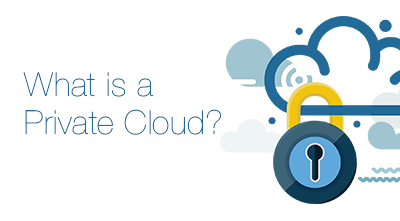What is a Private Cloud?
Private cloud is the term used to represent a cloud computing platform which is implemented within the corporate firewall controlled by the IT department.

A private cloud is nothing more than a secured, cloud-based environment that is specific to one particular party. It might be a business, a nonprofit organization or a government agency, but it is closed to any unauthorized users outside of that party. A private cloud can provide significantly greater security, but it can also result in the degree of control needed for compliance with government and industry regulations.
Why Is a Private Cloud Important?
A private cloud could be a very important consideration for businesses and organizations with specific needs. However, it should be noted that a private cloud is not the right solution for any product that will be consumer facing – the public cloud, or standard cloud model, is the better solution here, as it offers significantly better affordability, the ability to pay as you go, and requires no contracts.
A private cloud setup offers significant benefits in several key areas. One of those is security. Because the cloud is private, and closed to anyone but those authorized to access it, organizations and businesses can achieve very high levels of security. However, this does come at a significantly increased financial cost. It also means that providing access to the cloud to subcontractors or others outside the organization can be more difficult.
Another benefit to using a private cloud is the fact that the amount of control over hardware and software makes it a very good choice for organizations that must comply with HIPAA regulations, PCI regulations, or SOX requirements. All hardware, software and data storage solutions are dedicated to a single organization or entity, which provides the control necessary to ensure sensitive consumer or patient data is protected.
Other reasons to consider a private cloud include unpredictable computing needs. If your requirements change on a frequent basis, you need direct control over all the hardware, software and data storage provided by the data center to your organization or business. This is not possible with the public cloud, but it can be achieved with a private cloud.
Drawbacks to a Private Cloud
While there are many benefits to be gained with a private cloud, there are some drawbacks, as well. For instance, you will be required to manage your IT needs through in-house staff, rather than relying on a data center’s employees. This can increase your payroll costs, and add complications. Another consideration is the fact that you’ll likely encounter more costs than you would with the public cloud, including the costs of virtualization, and the need for cloud management tools.
It is possible to gain the best of both worlds through a hybrid cloud. This combines aspects of the public cloud and a private cloud to create a unique fusion of the two. It is less costly than a private cloud, but provides the same security. Cloud bursting capabilities also allow you to scale your requirements beyond the private cloud and into the public cloud.